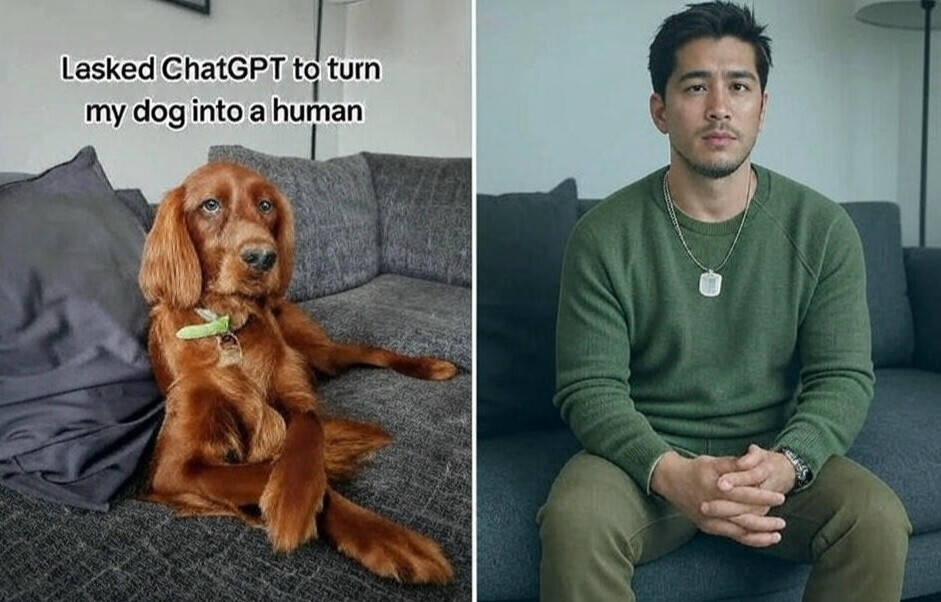
Recently, image generation technology utilizing ChatGPT has entered a new phase, with "animal humanization" drawings becoming a trend on social media. This goes beyond the previous generation of Ghibli or Disney-style image generation, stimulating users' imaginations and offering unprecedented visual enjoyment, garnering significant positive responses. In particular, images transforming one's own pets into human figures have provided many with a fresh shock and a sense of familiarity, attracting explosive interest and high view counts.
However, beneath this technological advancement and the public's positive reaction lie ethical and emotional questions that cannot be overlooked. It is a crucial time to seriously consider whether the animal humanization using ChatGPT fully aligns with the fundamental ethical views and sentiments of human society.
Firstly, the act of reproducing animals in human form raises concerns about deepening anthropocentric thinking. For a long time, humans have regarded themselves as the masters of all things, perceiving other living beings as inferior. Animal humanization can reinforce this perspective, potentially leading to a tendency to understand and consume animals based on human standards and frameworks, rather than respecting them as unique beings in their own right. This could result in a violation of the fundamental ethical value of respect for life.
Furthermore, these images can sometimes be caricatured or exaggerate the characteristics of the subject animals. This carries the risk of reinforcing prejudices or stereotypes against certain animals and potentially fostering a disregard for life. These problems hidden beneath superficial reactions of "cuteness" or "amusement" are crucial aspects that should not be overlooked.
Of course, attempts at animal humanization may simply be creative activities for the purpose of fun and entertainment. There are also positive aspects to new trials in the realm of art and imagination. However, in a situation where the influence of technology is spreading throughout society, indiscriminate generation and sharing of images under the guise of personal enjoyment can lead to unforeseen social repercussions that must be recognized.
Therefore, we must adopt a more cautious approach when utilizing artificial intelligence technologies such as ChatGPT. It is necessary to deeply discuss and reflect on the ethical and emotional implications in line with the speed of technological development. We need to recognize the potential problems that the act of humanizing animals can bring and engage in responsible contemplation to create a society where humans and animals coexist harmoniously. Rather than simply jumping on a new trend, we should constantly question and consider the proper use of technology and its resulting social impact.
[Copyright (c) Global Economic Times. All Rights Reserved.]




























